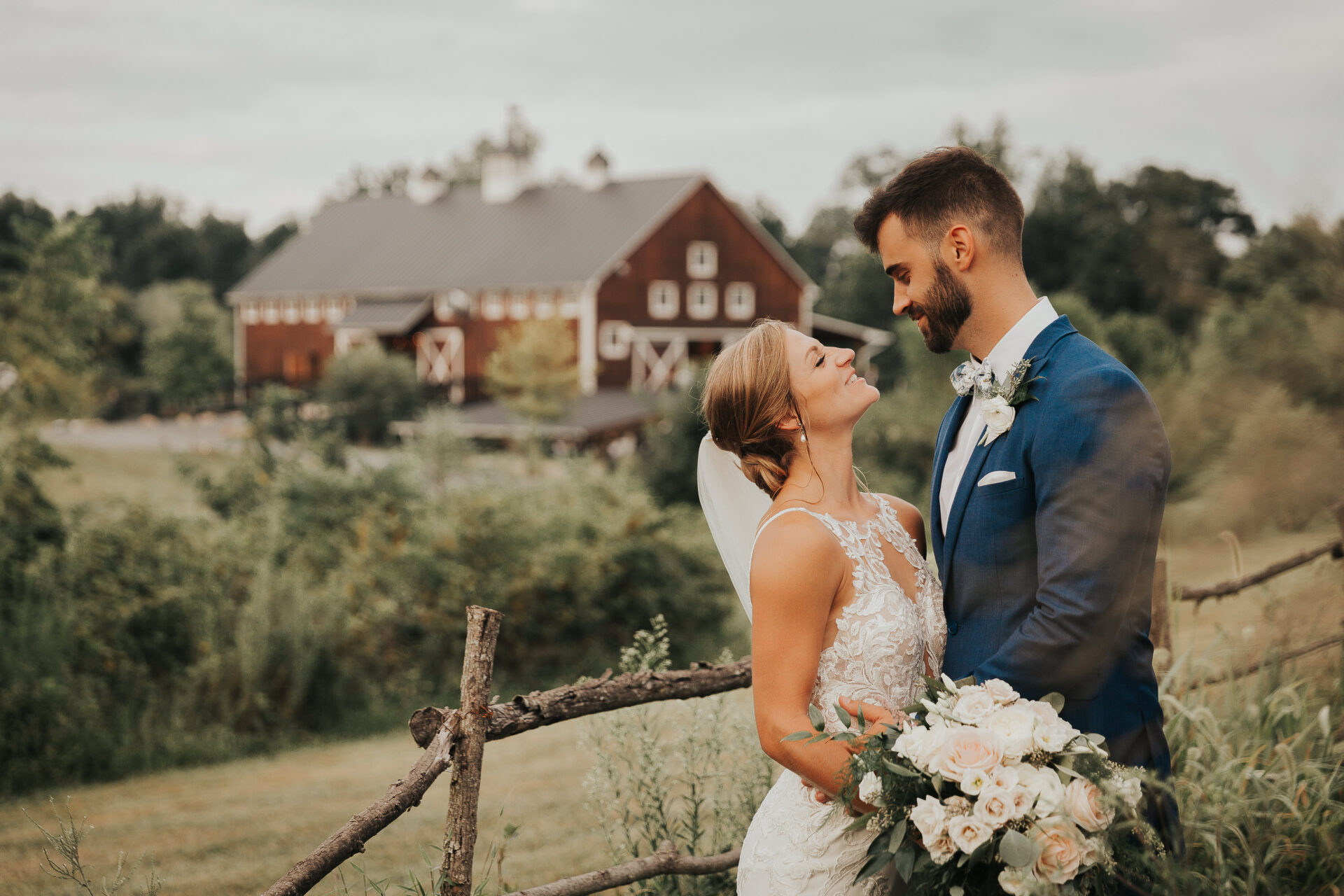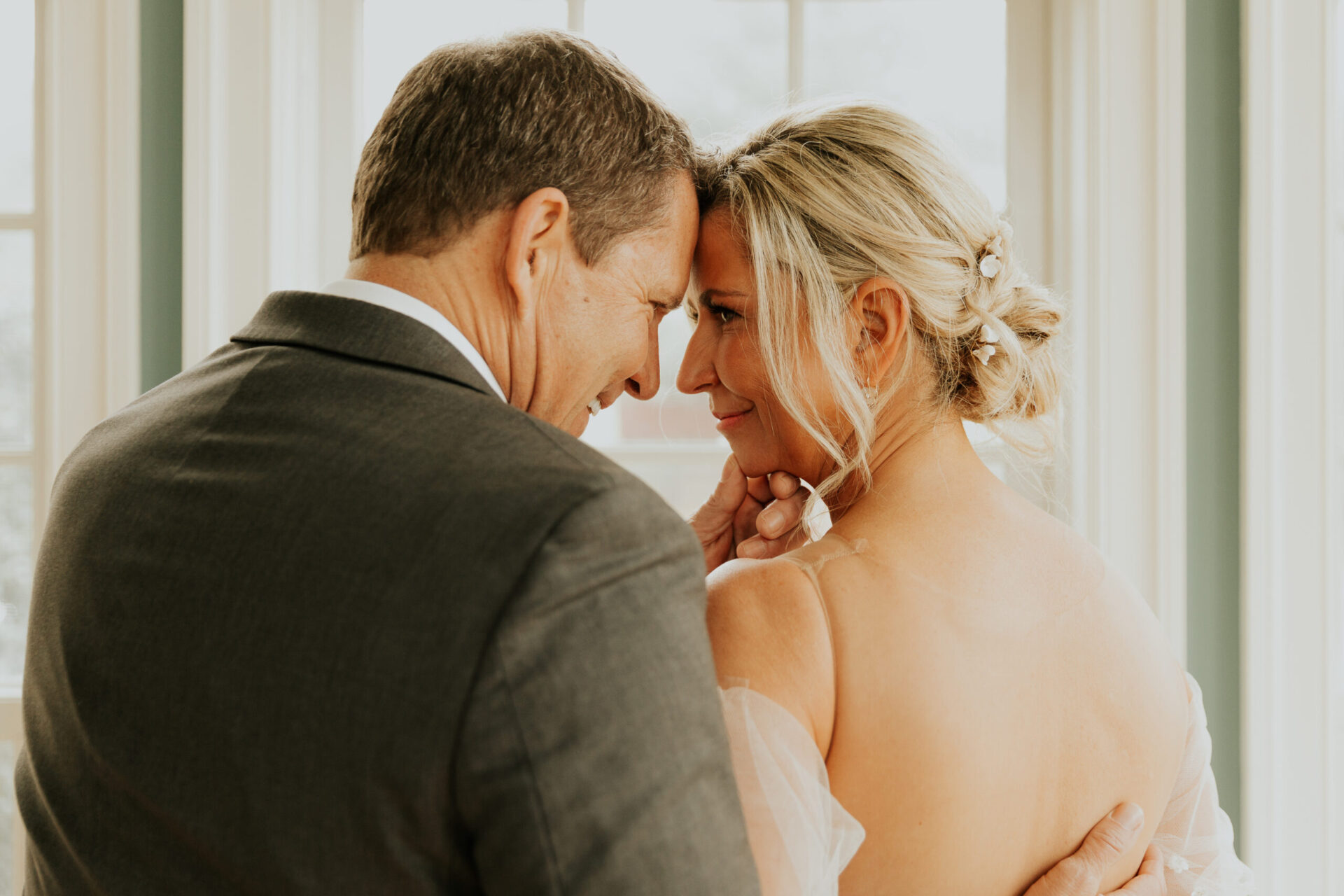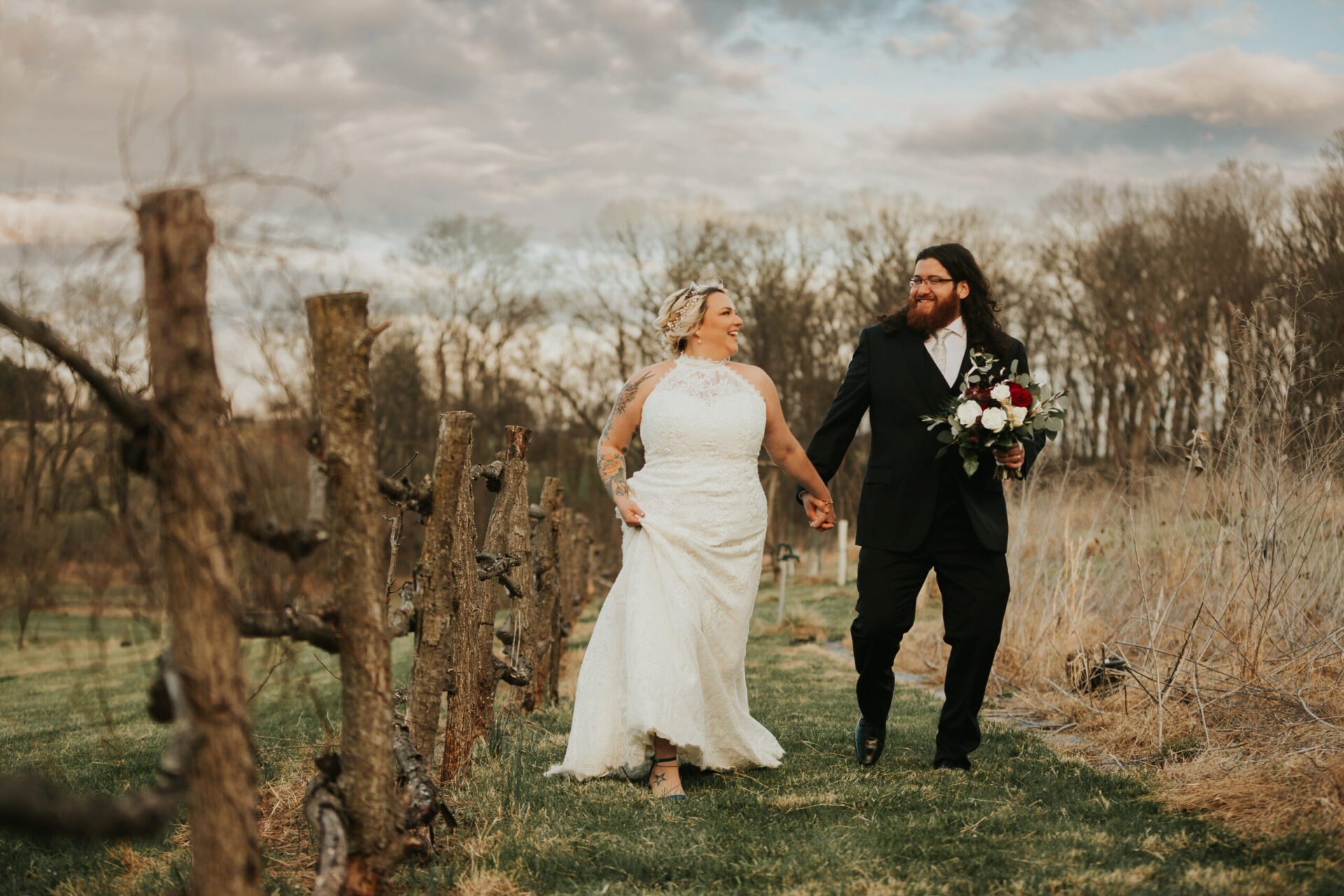By Terry Meadows
Table of Contents
3 minute read
Today, couples want to ensure their guests are treated to great food and open bar options. Navigating all the hidden costs, extra items, and fees involved in off-site catering can be overwhelming and confusing.
Catering is in the top five highest costs for your wedding, and prices per guest average $75 in Northern Virginia, not including alcohol and other fees and expenses. For 100 guests, that could mean you add $7,500 to your budget. However, if you want an open bar, then add another $50 per person. Your budget just grew to $12,500.
Why does a catered event cost so much?
- The setup is specific to a client’s requests and needs
- Off-site access to kitchen equipment is limited
- The menu is client-driven vs. mass-produced, as with a restaurant
- They must hire bartenders and servers to make it happen
- Transportation and food safety costs are added.
As an all-inclusive venue, Zion Springs has experience orchestrating hundreds of weddings and want to share our knowledge and expertise with you. If you are not using an all-inclusive venue for your wedding, we want you to be well-informed and know what to expect and what to ask when you choose your caterer.


1. Wedding catering personalization and customization
Most people will remember the great food they had at a wedding. So, choose a caterer that buys fresh, quality ingredients without skimping on quantity. You are paying for the chefs' professionalism, expertise, and experience.
When planning your wedding, you’ll want to design your menu and schedule a tasting session. Your caterer will include a variety of dishes you can choose from based on what you know your guests will enjoy. Sometimes, they might waive the cost of the tasting session if you decide to go with them for your wedding, so always ask if that is an option.
Your caterer will purchase each ingredient for the specific purpose of your wedding which means they lose any discounts they might get if they bought the same items regularly and in bulk.
You can work with your caterer to choose a variety of optional add-ons, such as a premium bar package, higher-quality menu choices, late-night food stations, or day-of meals and snacks. Hors d'oeuvres and alcohol packages can also add to your final bill.
If you are looking to save money, ask your caterer for suggestions on budget-friendly alternatives for each dish. You might find seasonal vegetables are less expensive. Buffets are typically less expensive than plated meals. Plated meals are more elegant, where guests are served more quickly, and their dining experience is elevated. Decide if you need all the add-ons, such as hors d’oeuvres and canapés before your meal. You can also save costs on beverages if you limit to a signature cocktail, wine, and beer, instead of a full bar option.
2. Wedding catering convenience and all-inclusive
3. Wedding guest special dietary requests
With an increasing number of guests, you are more likely to have requests for dietary restrictions. Your guests will appreciate the consideration you give to them by accommodating their needs. Caterers are experienced in accommodating vegan, gluten-free, allergies, aversions, vegetarian, etc., and can offer solid suggestions to meet the dietary needs of your guests.
At a recent wedding, Zion Springs had three guests who were gluten-free, seven were vegan, and another had a nut allergy. We made sure that the culinary team and wait staff were very familiar with each guest’s needs, and guidelines were stringently followed.
4. Kitchen requirements at your wedding venue
You will need a kitchen if your wedding is at the local fire station or in the wild freedom of nature’s beauty. Caterers need space to prepare and serve your meals, which might mean bringing in their own equipment, even a mobile kitchen.
On top of this, they will need to negotiate liquor licenses according to the venue requirements and restrictions.
Make sure your vendors have the requisite licenses as well as insurance. (OSHA, liquor license, catering license, etc. )


There are a number of incidental costs and charges associated with catering your wedding that don’t necessarily fall under a neat heading.
- Gratuities - like in any restaurant, waitstaff work based on tips. This charge is covered when you book your caterer. With all the waitstaff, kitchen staff, bartenders, and cooks, you can expect a gratuity charge of at least 20%.
- Venue fees - Facilities have service and venue fees that are charged to caterers for use of the venue. This is passed onto the client and can add up to a staggering 20% to your bill.
- Health and Sanitation Safety - The catering company must adhere to Health and Safety regulations. These requirements invariably add extra costs and time to preparation and service.
- Setup and breakdown - Caterers must set up and clear the kitchen, serving, and dining areas. This includes the travel time if the event is off-site, decorating, and setting the tables according to your design theme.
- Setup/Breakdown - If the venue provides all the furniture, tableware, dinnerware, and glassware, they need to not just set it up in preparation for your reception, but clear it away, wash, and pack each item.
- Transportation - Your caterer might need to deliver all your reception rentals and food if you are using a facility that doesn’t provide them. That means the use of delivery trucks and mileage may be an added cost.
Catering is not alone with extra charges, and you can expect to find more hidden costs in other areas of your wedding planning
How do you keep your wedding catering costs reasonable?
You wondered why catering for weddings is so expensive. Generally speaking, there is a sliding scale of how much it costs per guest, and the more guests you have, the more people there are to spread those costs.
Choose a caterer you can trust. Ask around for personal referrals, and look online for good reviews. Check if they are creative and experienced with your food selections and will provide you with solid consultation and guidance to execute your vision.
The average price per guest is $75, in a study by The Knot. Your dining budget is obviously affected by your meal choices, so the decision ultimately comes down to what experience you want for your guests. A relaxed and informal wedding, an elegant and formal wedding, or anything in between.
Saving money on your catering is just the beginning, so it helps to know beforehand what are the itemized costs for all parts of your wedding.
For a truly all-inclusive wedding contact our wedding experience expert at Zion Springs where all of your catering requirements are part of the package.
Further reading:
Why choose an all-inclusive venue for your wedding
Hidden costs when planning your wedding
What is our wedding going to cost?
(Note: no compensation was received for mentions and links)




